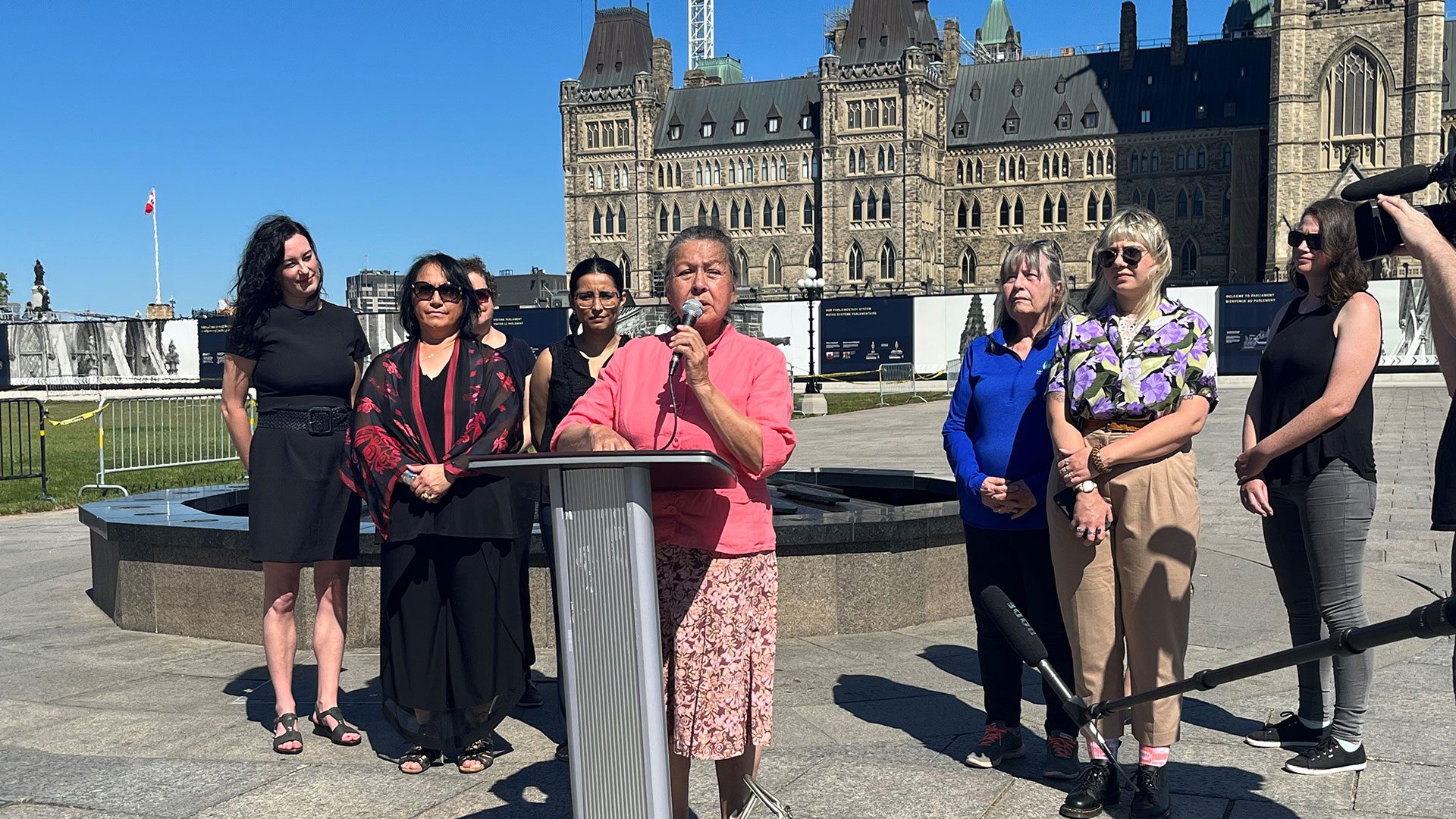A group of women from various groups across the country stood by the Centennial Flame at the entrance to Parliament Hill and announced that they’ve filed a complaint with the Federal Housing Advocate over systemic issues and barriers facing Indigenous Peoples across the country.
“This Claim acknowledges that the current homelessness crisis, disproportionately impacting Indigenous Peoples, is a direct result of colonial and patriarchal policies that have dispossessed Indigenous Peoples of their lands and homes, and commodified land and housing as profitable assets leading to the concentration of wealth with a privileged few,” said the report, The Crisis Ends with Us.
“Across Canada, many women, girls, and gender-diverse people live in insecure or unsafe housing – or are made homeless – due to deliberate policy choices. We disproportionately live in core housing need, head single-parent households, and bear the burden of childcare, putting us at risk of eviction when faced with the impossible choice of paying the rent or feeding our kids.”
Margaret Pfoh, CEO of Aboriginal Housing Management Association in British Columbia, says she’s been advocating for urban Indigenous women and girls in the province for the past 28 years.
She said according to their research $7-billion is what it will take to fix the problem there.
“We have said our people are literally dying on our doorsteps and we’ve been asked by federal representatives, are you at the breaking point?” she asked. “We as people are not at the breaking point, but our people are dying. So I would say that the housing structures and systems. are beyond the breaking point, so I don’t think we can afford to wait much longer.”
The claims were filed by the Keepers of the Circle and The Women’s National Housing & Homelessness Network.

The Federal Housing Advocate, chaired by Marie-Joseé Houle who was appointed in February, is a new housing “watchdog” and works out of the Canadian Human Rights Commission offices.
According to the FHA’s website, Houle can’t provide “remedies” for individual cases – but it can point out systemic issues in housing.
The advocate is mandated by the “National Housing Strategy Act to receive submissions from the public on systemic housing and homelessness issues,” the website said. “When there is a systemic issue that warrants more review, the Advocate has two options – to conduct an Advocate led review, or to request that the National Housing Council establish a review panel to hold a public hearing on the issue.”
Marie McGregor Pitawanakwat, who represents Keepers of the Circle, said she has experienced what it is to be homeless.
Four years ago, she was evicted from her home in Whitefish River First Nation, near Manitoulin Island.
Pitawanakwat said she’s hopeful the claims will mean action.
“I’m hoping that she, he, they will respond to the recommendations in the human rights claim, the ones that I made in particular, where recommendations for designing and building our own homes, having our own training program to do so and having our own accreditation from the training program to do so that indigenous peoples, women in particular, are able to build our own homes again,” she told APTN News.
Arlene Hache came from the Northwest Territories for the announcement and said she also has a lived experience of homelessness. She called the launch of a human rights complaint a momentous day.
“There are over 400 groups and individuals across the country, diverse individuals and groups that is composed of that group and its also coming from the national Indigenous feminist working group, housing working group, they compiled the research, they did the policy analysis and they gathered the testimony from those most impacted by Canada’s failure to realize the right to housing,” she said.
According to Pfoh, the federal government’s $300 million housing investment in the budget is just a band-aid.
She said between Ontario and B.C. alone, over $20 billion is needed.
Meanwhile, the Federal Housing Advocate has 120 days to respond.










